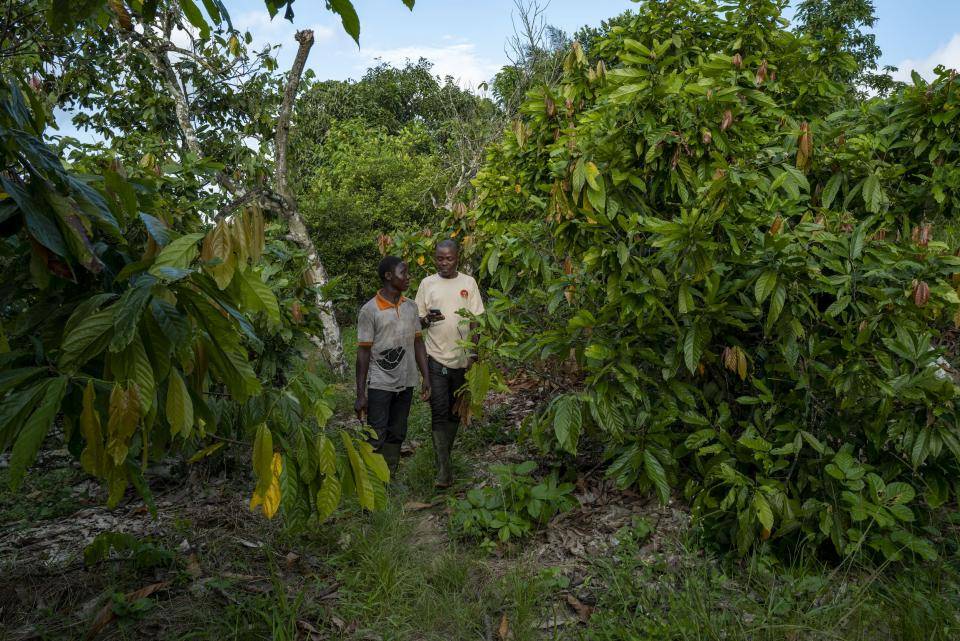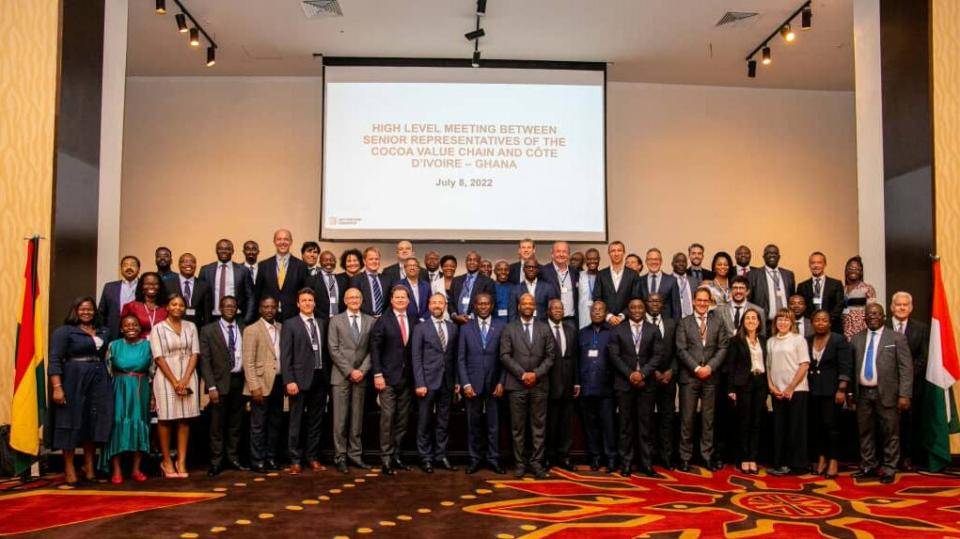Barry Callebaut Expects to Hit Sustainable Cocoa Target by 2025

Effective traceability across the global value chains is vital to making sustainable chocolate the norm and can only be achieved through collaboration of all stakeholders. Barry Callebaut is leading and supporting initiatives to make this goal a reality, partnering with key actors across the value chain to scale up efforts towards achieving full transparency and traceability of the cocoa supply chain.
Barry Callebaut released the following on the announcement:
Barry Callebaut explores collaborative ways to drive its sustainability commitments
Traceability is a cornerstone of our Forever Chocolate commitment to making sustainable chocolate the norm by 2025. Traceability to farm level, knowing where the cocoa we source is grown, plays a crucial role in addressing some of the structural sustainability issues in the cocoa supply chain. Accurate insights into cocoa sourcing, gathered through polygon mapping and geo-localization based on satellite images, are imperative for us in our efforts to eliminate deforestation from the cocoa supply chain.
However, establishing sector-wide traceability is no easy feat. According to the World Cocoa Foundation (WCF), around half of world bean supply is sourced indirectly by cocoa and chocolate companies from independent exporters and traders, mostly due to the regulatory and licensing requirements in origin countries. This makes the development of effective traceability systems a multi-layered undertaking.
An effective sustainability strategy has to incorporate a robust government-mandated traceability system, one that combines industry data with government data and is made accessible to all stakeholder groups.
Steven Retzlaff, President Global Cocoa
What are the benefits of sector-wide traceability?
Tackling the complexity of the cocoa sector and enabling full traceability requires multi-stakeholder commitment and action, connecting origin and consuming countries to cooperate closely on a broad spectrum of necessary actions. These include precise mapping of farms through polygon mapping, data collection on farmer communities and the setup of human rights and environmental risk assessments.
Outlining the boundaries of a farm through polygon mapping helps establish its proximity to forests and potential risks of expansion into protected areas. Combining this information with additional data on the farmer, their family and the community gives a solid picture of what specific farms need to transition to sustainable agricultural practices. These datasets are a cornerstone in developing robust risk assessments for environmental and human rights abuses in compliance with upcoming due diligence legislation, thus advancing efforts to tackle the main sustainability challenges in the cocoa sector.

A Barry Callebaut employee and an Ivorian cocoa grower are mapping the farm, collecting polygon coordinates to establish the exact location and size of the farm, the number of cocoa trees, together with socioeconomic and household data.
Our actions within our direct supply chain and beyond
Barry Callebaut has already achieved high levels of traceability in its direct supply chain. We have been publicly disclosing the geolocation of our direct suppliers in Côte d’Ivoire, Ghana and Cameroon since 2019. In 2020/21, a total of 240,570 farms located within 25 kilometers of a protected forest area were mapped and monitored. This has led to full traceability for cocoa beans originating from these farms. Overall, we have reached 80% traceability to cooperative level and 60% to farm level. We are confident we will reach full traceability across our direct supply chain by 2025.
At the same time, we are focusing on developing projects that aim to transfer our traceability know-how from our direct to our indirect supply chain. In 2021, we conducted a pilot program with three key indirect suppliers in Côte d’Ivoire. This initiative involved training our suppliers to enable precise and timely data collection.
As a result of this program, nearly 35,000 farmers were engaged, with polygon data collected for over 18,000 farmers representing around 20,000 cocoa plots covering 45,000 hectares in total. Through this project, we have gained a great deal of insights into the current maturity level of traceability among local indirect suppliers and how we can best assist them to further improve and scale up their traceability efforts. As a next step, we plan to onboard an additional 9 suppliers and the cooperatives they source from.
Multi-stakeholder commitment to achieve sector-wide traceability
In the past decade, industry efforts have considerably increased to scale traceability across direct supply chains. The governments of Côte d’Ivoire and Ghana have also been intensifying their efforts to support the upscaling of accountability in the indirect supply chain by registering and mapping farms and working on national traceability systems. “An effective sustainability strategy has to incorporate a robust government-mandated traceability system, one that combines industry data with government data and is made accessible to all stakeholder groups,” Steven Retzlaff, President Global Cocoa, outlines.
At the same time, consuming governments are moving into action. The European Union, world’s largest importer of cocoa, has acknowledged the crucial role of traceability in addressing structural issues in the cocoa supply chain by increasing regulatory requirements on deforestation and human rights and environmental due diligence. The upcoming EU legislation will require companies to set up systems to identify, prevent, mitigate and remediate adverse impacts that their activities have on human rights and on the environment. The building block of such due diligence systems is traceability.
These developments echo calls launched since 2019 by Barry Callebaut together with the European Cocoa Association, other companies and NGOs requesting that the European Union introduce legislation setting a due diligence obligation on all companies that place cocoa or cocoa products on the EU market. We are happy to see that our vision and accompanying advocacy work are yielding results and are supporting the development of a level playing field for all companies.

Barry Callebaut is actively engaging with legislators and supply chain actors. We have also contributed to the development phase of the EU Alliance on Sustainable Cocoa and its roadmap and recently signed the Côte d’Ivoire – Ghana Cocoa Initiative (CIGCI) Economic Pact (as pictured above), joining forces with the Ivorian and Ghanaian governments and other industry players to accelerate the transition to a living income to all farmers. Photo credit – Côte d’Ivoire-Ghana Cocoa Initiative (CIGCI)
Advancing efforts to reach a fully sustainable cocoa sector
In recent months, we have also collaborated with Conseil Café Cacao (CCC) in Côte d’Ivoire on a traceability trial project that has involved sharing our farmer data for the region of Aboisso so that it can be merged with government-owned data. The aim of the trial project is to feed the learnings into the development of a consolidated national farm database, currently being built by the CCC.
We are proud to be a leading company on implementing traceability – and to see the benefits of combining regulatory and industry initiatives in origin and consuming countries. These coordinated efforts will streamline the advancement of sustainability in the cocoa sector and support making sustainable chocolate the norm.
Steven Retzlaff, President Global Cocoa
The goal of full traceability has to be shared and effectively implemented by each and every player in the cocoa industry if we are to bring sustainability to farming communities and to the global supply chain. Steven Retzlaff, President Global Cocoa, sums up “We are proud to be a leading company on implementing traceability – and to see the benefits of combining regulatory and industry initiatives in origin and consuming countries. These coordinated efforts will streamline the advancement of sustainability in the cocoa sector and support making sustainable chocolate the norm”.
Source: Barry Callebaut








